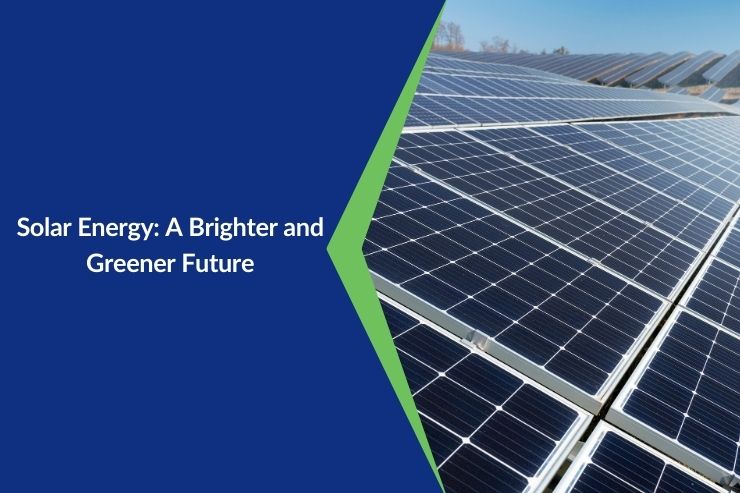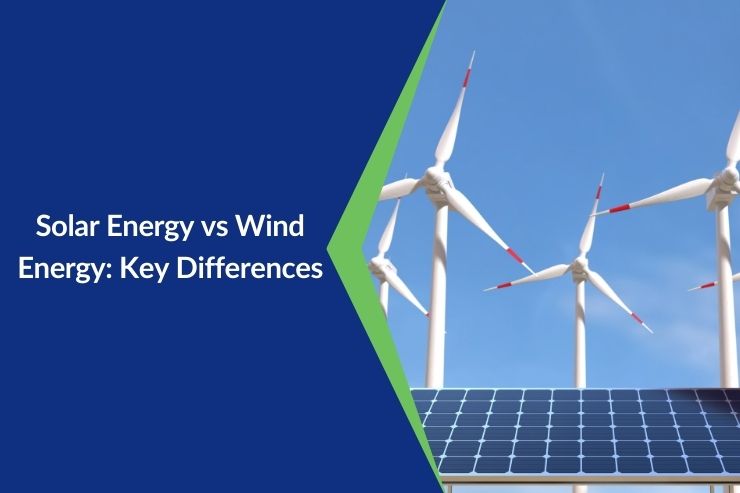Today, solar energy is one of the most talked-about renewable energy sources. It’s clean, abundant, and accessible. These qualities make it a critical component in the fight against climate change. The idea behind converting sunlight into power to reduce dependency on fossil fuels is practical. It is not just about going green but rethinking how homes, businesses, and even industries can be powered.
Overview
Solar energy, harnessed from the sun’s rays, is a clean and renewable energy source that has gained significant importance in recent years. By converting sunlight into electricity, solar energy helps reduce greenhouse gas emissions and lessen our reliance on fossil fuels. This renewable energy source offers a sustainable solution to the world’s growing energy demands.
Solar energy not only gives us clean energy but also helps us meet our need for fossil fuels. These fuels can harm the environment, are expensive, and change prices significantly. This is especially important for India, as solar energy is quickly becoming a big part of the country’s energy supply.
How Does Solar Energy Work?
Let’s carefully understand how solar energy works.
Basic Principle
Essentially, it is a form of energy that is generated by capturing sunlight and converting it into a useful form. This is done using solar panels, which are composed of smaller units known as photovoltaic cells, or PV cells. The energy from the sun frees electrons, thus producing an electric current. The photovoltaic effect, which occurs here, is why solar panels work.
Converting Sunlight into Power and Heat
Once sunlight hits the panels, the generated current is sent to an inverter, which transforms it from direct current (DC) into alternating current (AC), the type of electricity used in homes and businesses. Some systems also capture sunlight to produce heat, such as for warming water or spaces. These systems absorb sunlight using special materials or designs that maximise heat retention. Whether it’s electricity or heat, the entire process depends on how well we can capture and use the sun’s limitless energy.
Types of Solar Energy
Below are the types of solar energy you should know about:
Photovoltaic Solar Energy
These panels are of three main types: monocrystalline, polycrystalline, and thin-film variants. The monocrystalline panels are relatively more efficient and expensive. Then there is the polycrystalline, which is slightly low in efficiency but more economical. Then, there is a thin-film model that is lightweight and highly versatile but still less powerful. Each of these types of solar energy panels is for a purpose that specifically suits one’s needs according to one’s budget.
Solar Thermal Energy
Solar thermal energy focuses on using the sun’s heat rather than light. These systems often use special panels or pipes filled with fluid to capture and transfer heat. Solar thermal energy is particularly useful for homes and businesses in colder regions where heating is a primary concern.
Concentrated Solar Power (CSP)
CSP takes solar energy to another level by concentrating sunlight using mirrors or lenses. This concentrated form of sunlight is then used to heat a liquid, creating steam to power moving turbines and produce electricity. CSP is ideal for large-scale energy production, often found in desert areas with plenty of sun and space.
Benefits of Solar Energy
Below are the benefits of using solar energy :
Environmental Benefits
Solar energy is one of the cleanest energy sources available. Using sunlight reduces greenhouse gas emissions and lowers air pollution, which are major contributors to climatic change. Unlike any source of fossil fuel, sunlight does not emit harmful substances into the atmosphere.
Economic Benefits
This significantly saves electricity bills for homes and businesses. In the long term, the savings usually outweigh the cost of installation. Governments have also provided incentives and subsidies to make solar installations less costly.
Energy Independence
One of the main benefits of solar energy is the fact that it reduces reliance on external energy sources. Through the generation of power at a local level, people and communities can reduce their reliance on grids or imported fuels.
Uses of Solar Energy
Now that you have understood the basics, the next thing is to understand the application of solar energy. Let’s take a look at the pointers below.
Residential Uses
The electricity generated through rooftop installation of solar panels powers the lights, appliances, or even electric vehicles. Solar energy can be used in houses to heat or cook water, thereby significantly decreasing one’s reliance on the former sources of energy. The result is lower energy bills and a smaller carbon footprint.
Commercial and Industrial Uses
Today’s rising trend among businesses is cutting costs and enhancing their sustainability through solar power. The big solar installations are even powering factories, office buildings, and shopping malls. This cuts down on electricity expenses and makes the company an environmentally responsible organisation.
Solar Energy in Agriculture
Solar-powered irrigation systems are helping farmers cut their fuel costs and be more efficient. Greenhouses that have solar panels allow better temperature regulation, thereby yielding better crops. These are also beneficial in rural areas, where reliable energy sources may not be readily available.
Challenges and Limitations of Solar Energy
Initial Costs and Installation
The initial cost of solar panels and installation is very high and is one of the main challenges of solar energy adoption. Although the prices have declined over the years, it still remains a significant barrier for many. However, loans and leases, as well as government incentives, are making it possible for more people to cross this barrier.
Weather Dependency and Energy Storage
Because solar energy is dependent on sunlight, cloudy days and nighttime periods can decrease the efficiency. Energy storage solutions such as battery power now play a role in overcoming these challenges. These systems store excess power generated during sunny periods and provide an assured electricity supply.
The Future of Solar Energy
With numerous applications of solar energy, the future stands bright. Let’s learn about the advancements that might make solar energy more resourceful.
Technological Advancements
Advances in materials and designs increase panel efficiency, while improvements in battery technology alleviate storage issues. Emerging technologies, such as bifacial panels and solar roofs, are also creating new possibilities.
Global Adoption and Solar Market Growth
Solar energy adoption is happening fast across the globe. It is led by countries like India, China, and the US, with government initiatives and international agreements. As the market expands, economies of scale decrease costs, making solar energy more affordable.
Conclusion
Solar energy is much more than a renewable resource; it’s a way to achieve a sustainable and independent future in terms of energy. From reducing emissions to reducing costs, the benefits of solar energy are impossible to ignore. With solar energy, we not only benefit the planet but also master our energy needs. It’s a win-win situation for individuals, businesses, and the environment.
Frequently Asked Questions
What is solar energy?
Solar energy is the energy derived from the solar rays used to produce electricity or heat through various technologies like solar panels and thermal systems.
What are the main types of solar energy?
The main types are photovoltaic or PV solar energy, concentrated solar power (CSP), and solar thermal energy.
What are the advantages and disadvantages of solar energy?
Advantages include sustainability, cost savings, and energy independence. Disadvantages involve high initial costs and weather dependency.
What are the benefits of using solar energy?
Benefits include reduced energy bills, lower carbon emissions, and increased energy security.
What is solar energy used for?
Solar energy is used for electricity, water heating, cooking, and agricultural applications like irrigation and greenhouse heating.










